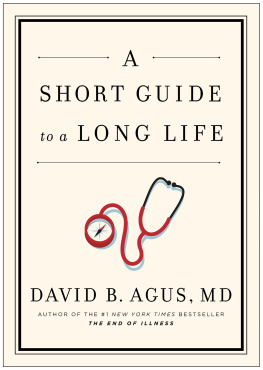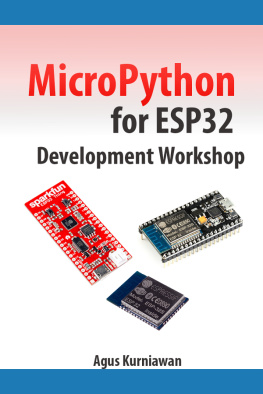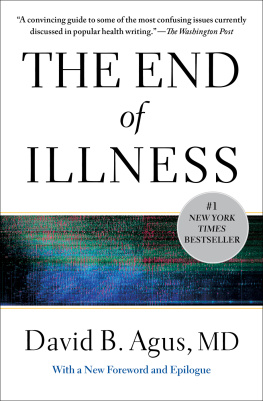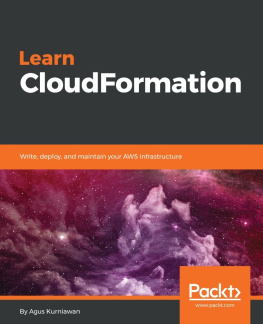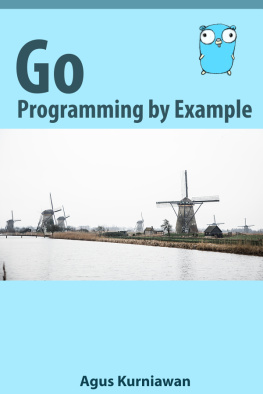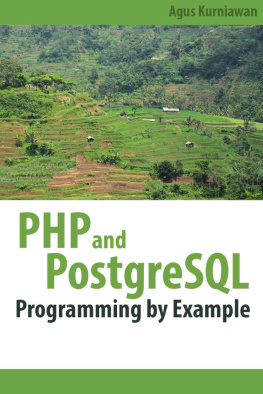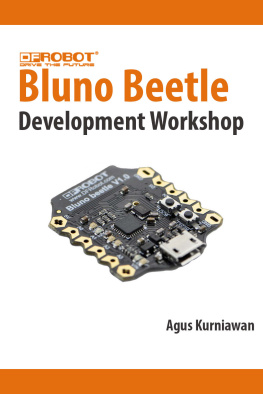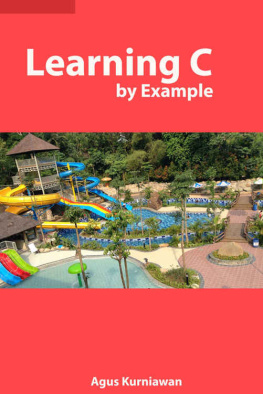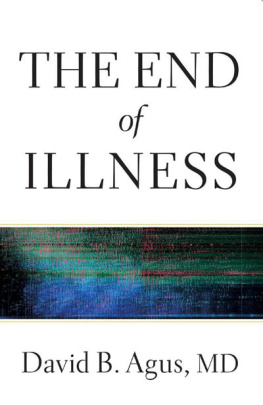NOTE TO READERS
This publication contains the opinions and ideas of its author. It is intended to provide helpful and informative material on the subjects addressed in the publication. It is sold with the understanding that the author and publisher are not engaged in rendering medical, health, or any other kind of professional services in the book. The reader should consult his or her medical, health, or other competent professional before adopting any of the suggestions in this book or drawing inferences from it. The author and publisher specifically disclaim all responsibility for any liability, loss or risk, personal or otherwise, which is incurred as a consequence, directly or indirectly, of the use and application of any of the contents of this book.
Thank you for downloading this Simon & Schuster eBook.
Join our mailing list and get updates on new releases, deals, bonus content and other great books from Simon & Schuster.
C LICK H ERE T O S IGN U P
or visit us online to sign up at
eBookNews.SimonandSchuster.com
We hope you enjoyed reading this Simon & Schuster eBook.
Join our mailing list and get updates on new releases, deals, bonus content and other great books from Simon & Schuster.
C LICK H ERE T O S IGN U P
or visit us online to sign up at
eBookNews.SimonandSchuster.com
CONTENTS
To my wife, partner, and love, Amy Povich, and our genetic experiments gone right, Sydney and Miles
A BRIEF HISTORICAL NOTE
Hippocrates was a Greek physician in the time of the third and fourth century BC. Modern medicine refers to Hippocrates as the father of Western medicine. He was among the first physicians to convey important health rules through his many now-famous quotes. Below are some examples that continue to have amazing relevance to todays medicine. In fact, one could argue that our modern world has brought science and data into the field, but his initial observations and recommendations were remarkably accurate over two thousand years ago.
Walking is mans best medicine.
Let food be thy medicine and medicine be thy food.
Declare the past, diagnose the present, foretell the future.
Primum non nocerum. (First, do no harm.)
It is far more important to know what person the disease has than what disease the person has.
If we could give every individual the right amount of nourishment and exercise, not too little and not too much, we would have found the safest way to health.
A wise man should consider that health is the greatest of human blessings, and learn how by his own thought to derive benefit from his illnesses.
Everything in excess is opposed to nature.
To do nothing is also a good remedy.
There are in fact two things, science and opinion; the former begets knowledge, the latter ignorance.
Hippocrates (c. 460 BCc. 370 BC)
Introduction: The Power of Prevention
At least twice a week, I tell a patient that I have nothing left in my arsenal to combat his or her cancer. Its over, and in most cases the end is near. Ive never gotten used to this gut-wrenching conversation. But I do it as part of the role Ive accepted. That we are no better at treating cancer today, with a few notable exceptions, than we were fifty years ago is maddening. More infuriating still is that many of my patients could have prevented their cancer or other life-altering disease had they done a few things differently earlier in life. That makes those conversations even more upsetting. Im pretty certain that most people could delay or totally prevent a vast majority of the illnesses we see todayincluding not only cancer but heart and kidney disease, stroke, obesity, diabetes, autoimmune disorders, and dementia and other neurodegenerative disordersif they just adopt a few healthy habits early on and avoid the ones that lead to illness.
The best way to fight not just cancer but all the other ailments that typically develop over time is to prevent them. A staggering seven out of ten deaths among Americans each year are from chronic diseases like the ones I just named. Heart disease, cancer, and stroke account for more than 50 percent of all deaths every year. About half of us are living with a chronic condition right now.
But prevention is a hard sell. Think about yourself for a moment: can you see yourself twenty, thirty, or forty years from now? We all want to live however we choose today and pay our dues later. I see this payment being made by my patients daily, just by looking into their eyes.
Id like nothing more than to be put out of my job. Imagine a world where we all die of old ageour bodies go kaput, much like an old car with hundreds of thousands of great miles on it. One day, the engine doesnt start and nothing can revive it. In fact, 1951 was the last year you could die in the United States with the cause old age being listed on the death certificate. Since then, weve had to name a specific disease, injury, or complication. I find it astonishing to think that we live in a high-tech world with access to a vast array of knowledge about how to stay healthy, and yet preventable noncommunicable diseases now account for more deaths worldwide than all other causes combined. We rarely hear about the person who dies peacefully in her sleep at ninety-nine years young. Instead, we hear about individuals who suffer mightily and eventually succumb after a long battle.
In our age of information, where health tips are dispensed like candy by the media, the work of being healthy has gotten complicated. Just consider your own search for truth about whats good for youor whats bad. Its common practice to rely on experts to tell us how to livenews stories covering the latest scientific findings, bestselling books that tout one theory or another, government recommendations, claims on labels, and doctors like me. But this advice is so terribly common that it commonly conflicts. What is a person to do with a hot media account of a new study that finds multivitamins effective in preventing canceronly to read another media account the next day that says multivitamins can increase your risk for cancer and do nothing for heart health? (And to add insult to injury, you learn that the company that makes the vitamins is the same one that makes the drugs to combat cancer!)
When I wrote my first book, The End of Illness, my purpose was simple: to share what Id learned from working out on the edge of the cliff that is the war on cancera place where we take risks in medicine in the hope of finding innovations to prolong peoples lives. While the death rate from cancer hasnt changed dramatically in the past fifty years, progress against other diseases has relied on single discoveries that have allowed us to treat or eradicate them. Examples include the use of statins to prevent cardiovascular disease and stroke, antibiotics to combat infectious diseases originating from bacteria, antivirals and vaccines to tackle and protect against specific viruses, and a heightened awareness of the risks posed by behavioral factors such as smoking and poor diet or overeating. Except for these isolated improvements, why arent we better at treating and curing chronic degenerative diseases that often cannot be blamed on a single culprit?
For decades weve tried to reduce our understanding of the body and its potential breakdowns to a finite cause, be it a mutation, a germ, a deficiency, or a number such as a white blood cell count, glucose level, or a triglyceride value. But this has led us far astray from a perspective that could not only change how we care for the body, but also how we create the next generation of treatments and, in some instances, cures. The original title of The End of Illness, upon which this life guide is based, was What Is Health? Its a question that bugs me and my colleagues to this day. I dont know what true health is. We can certainly try to measure health in a variety of waysweight, cholesterol, blood sugar, blood cell count, how you look, and how well you sleep, for example. But that doesnt really tell me much in terms of overall health and how many years and days you might have left. This has motivated me to urge people to begin viewing their total health as a complex network of processes that cannot be explained by looking at any one pathway or focal point. In many instances, it does no good to try to understand a certain disease; we just need to control it, much like an air traffic controller manages planes without knowing exactly how to fly one. This radically different perspective on health is what can open the doorway to future solutions, and even cures.
Next page
